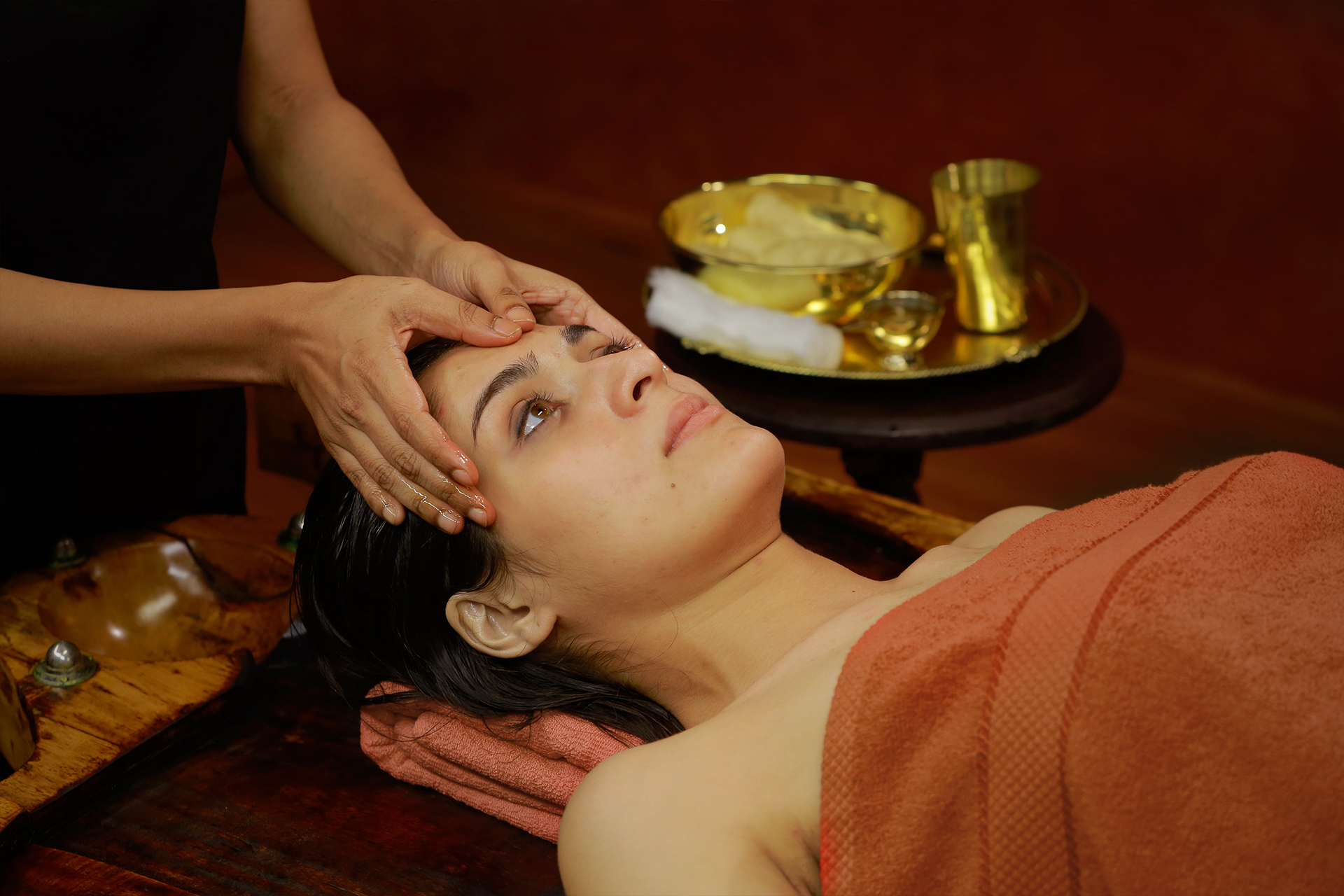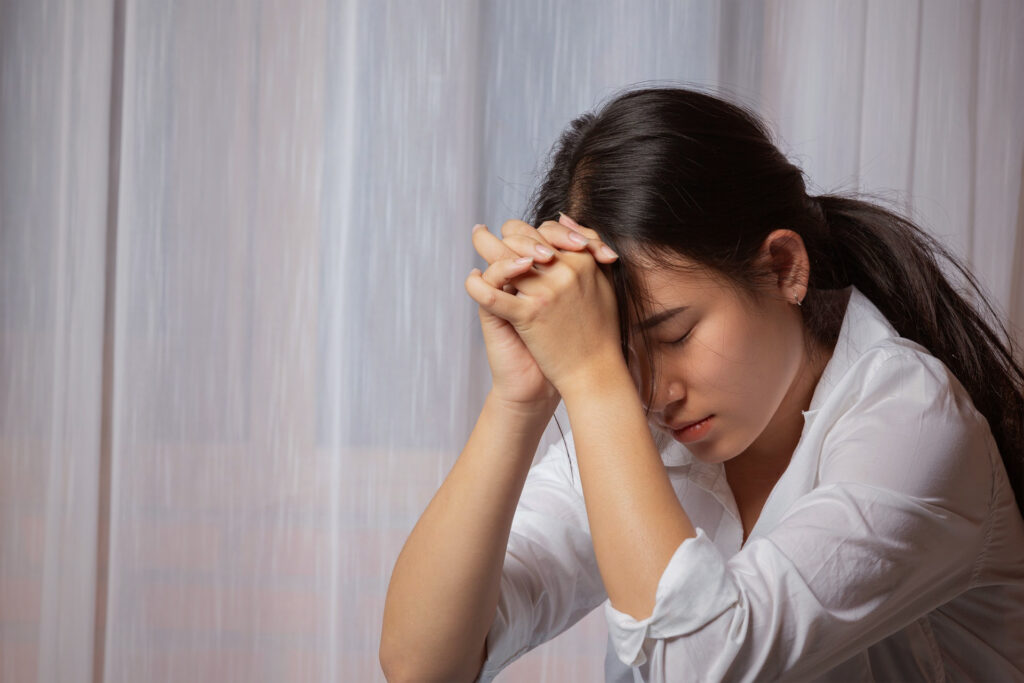
In the recent past, mental health issues have been in news almost daily due to the Covid-19 situation and the havoc it wreaked worldwide. Its aftermath left a huge dent in the social system as well as the psychological mindset. There has been a global phenomenon that revolves around mental health disorders that have cropped up instantaneously. These have been brought on predominantly by grief, loneliness, insomnia, distress, worry, substance abuse, depression, suicidal thoughts, anxiety etc.
The world is still reeling from the sudden pandemic and the subsequent lockdowns; thereafter grappling with how to come to terms with the social behavior attributions. And an opportunity to cash in has risen and so a lot of such mental help institutions have mushroomed everywhere, but which one is reliable is the real question……
Ancient Hindus have been garbling on about Ayurveda and how it is a way of life and its effects on both, physical and mental beings but it is only now that the world has woken up to the same. Ayurveda defines health as a perfect dance between the balance of energy and an amiable mental state. It is a comprehensive perception of the mind, body and soul and its connection.
Let’s grasp the study of the mind and its healing through Ayurveda.
The mind better known as “Manas” in Ayurveda is best described by its processes and responses.
- Control over self: Svasyanigraha
- Understanding: Vicary
- Control over senses, organs and emotions: Indriyabhigraha
- Thought process: Uha
The scholars of Ayurveda in ancient times spoke vastly about the body and its components which are summed up in three main doshas. Doshas are loosely translated as the principles of energy. These are Kapha, Pitta and Vata. For mental health issues, it is Vata that comes into play as this controls the mind. If this is imbalanced, there have to be repercussions of various kinds.
Let’s establish something first. The foundation of good health is a disciplined lifestyle, nutritious diet and sound sleep. Once this is down to pat, then one can explore other reasons for the lack of mental well-being.
Treatments for Mental health disorders in Ayurveda

It is important to regulate the digestive and metabolic states as a first step toward balancing the doshas. This helps achieve mental and physical well-being.
Ayurveda propagates these three practices for mental illnesses:
- Daivavyapasraya chikitsa – This is a holistic therapy that involves wearing certain herbs or gemstones, chanting mantras, fasting rituals, meditation etc. to help surrender the mind to a peaceful state.
- Yuktivyapasraya chikitsa – This is a logic-based therapy that regulates eating times, and promotes a sattvic diet along with herbs and drugs that are prescribed depending on the state of mind and preparedness. This therapy is more of detox and helps balance the doshas. Ayurvedic Panchakarma is the elaborate process of purification of the mind and body. For a general state of mental and physical well-being, panchakarma, tonics and herbal concoctions are recommended. And for more serious illnesses, palliative care is also prescribed.
- Satwavajaya chikitsa – This is a form of psychotherapy that aids in teaching an individual the principle code of conduct in Ayurveda. Using tools like abstinence, yoga, and music therapy, advocates and helps in achieving self-control. This is known to help centre the mind and be in a super-consciousness level of being.
Panchakarma – The five-pronged cleanse.
Total detoxification and cleanse with five actions and sub-actions that purify the mind, body and spirit are called “Panchakarma”. “Pancha” means five and “karma” means actions, in literal Sanskrit. These are:
- Virechana – This is a process of oleation, fomentation and emesis which is meant to expel the doshas especially Pitta.
- Basti – This is a form of enema where herbal concoctions and oils are administered to cleanse the colon.
- Nasya – This process is administered through the nasal cavity, and herbal oils are poured through the nose to cleanse the upper respiratory tract and the head.
- Vamana – This is a procedure where vomiting is induced with the intent to eliminate toxins using specific decoctions and methods.
- Raktamokshana – This process is meant to remove contaminated blood using a leech therapy, purifying the blood instantly and curing many skin surface diseases as well.
Herbs are used in Ayurveda for mental disorders
- Ashwagandha – Also known as Indian ginseng, Ashwagandha increases cortisol levels; thus improving brain function. This helps prevent anxiety, mood swings and depression and gives an overall feeling of general well-being. It is touted to be the best medicine in Ayurveda for mental illnesses.
- Brahmi – This helps regenerate brain tissues and copes well with the stress hormone, cortisol, reducing daily worries. It is known to improve memory and focus. This is an effective cure for Alzheimer’s symptoms too.
- Guduchi – Also known as Giloy, this herb has many virtuous properties. Besides being an immunity booster, it enhances memory, manages stress levels well and has “the herb which preserves the body from ailments” tag attached to it.
- Haridra – Commonly known as Turmeric, this root is anti-inflammatory and full of antioxidants which are attributed to the one ingredient that is present in it called curcumin. This helps enhance Brain-derived Neurotrophic factor (BDNF), which insulates against mental health issues.
- Mandukaparni – This fragrant Indian plant is advocated to be used daily for memory enhancement. It especially helps get rid of brain fog and boosts mental alertness.
Panchakarma procedure is broken down
Panchakarma embodies three main points which are:
- Poorvakarma – The word describes itself, “Poorva” is “Foremost” and “Karma” is “Action”. This involves “Snehan” which is oleation and “Swedan” which is a steam bath to induce sweat. This procedure is mainly to loosen out the toxins in the body.
- Pradhankarma – This process commences after Poorvakarma has been completed. This involves the five steps of panchakarma which are Vamana, Virechana, Basti, Nasya and Raktamochana and in the same order. These are the actions that purify the body.
- Paschat karma – Self-describing word again, this means the “After” ritual. This is a rejuvenating process that allows a person to get back into normalcy again and to go about the daily dietary regimens. It involves education on lifestyle, diet, herbal supplements etc.
Epilogue
Panchakarma treatment is an Ayurvedic therapy that purifies the mind and has been extensively discussed and used worldwide. Besides the physical rejuvenation, this has been very result-specific for mental and emotional disorders. Globally acknowledged to be the protective nature-cure that fights stress, anxiety and depression; thus healing a person on the whole.


